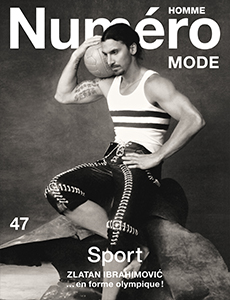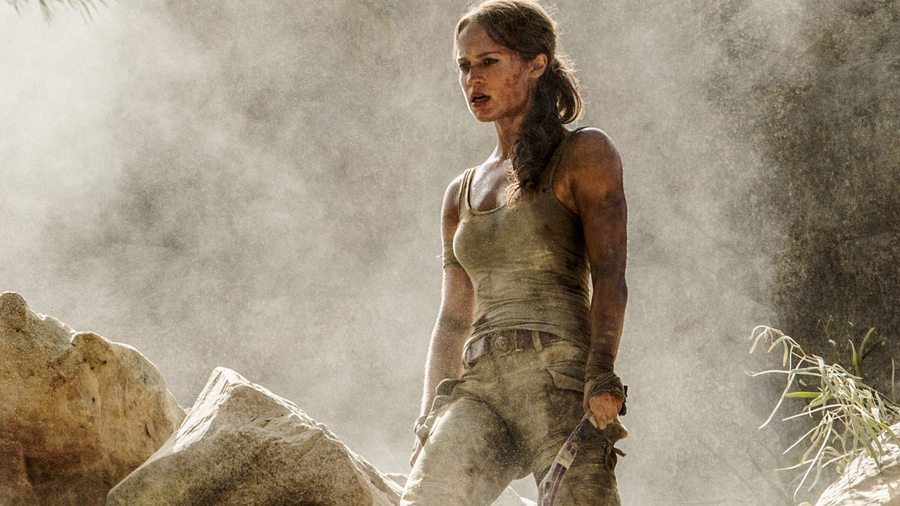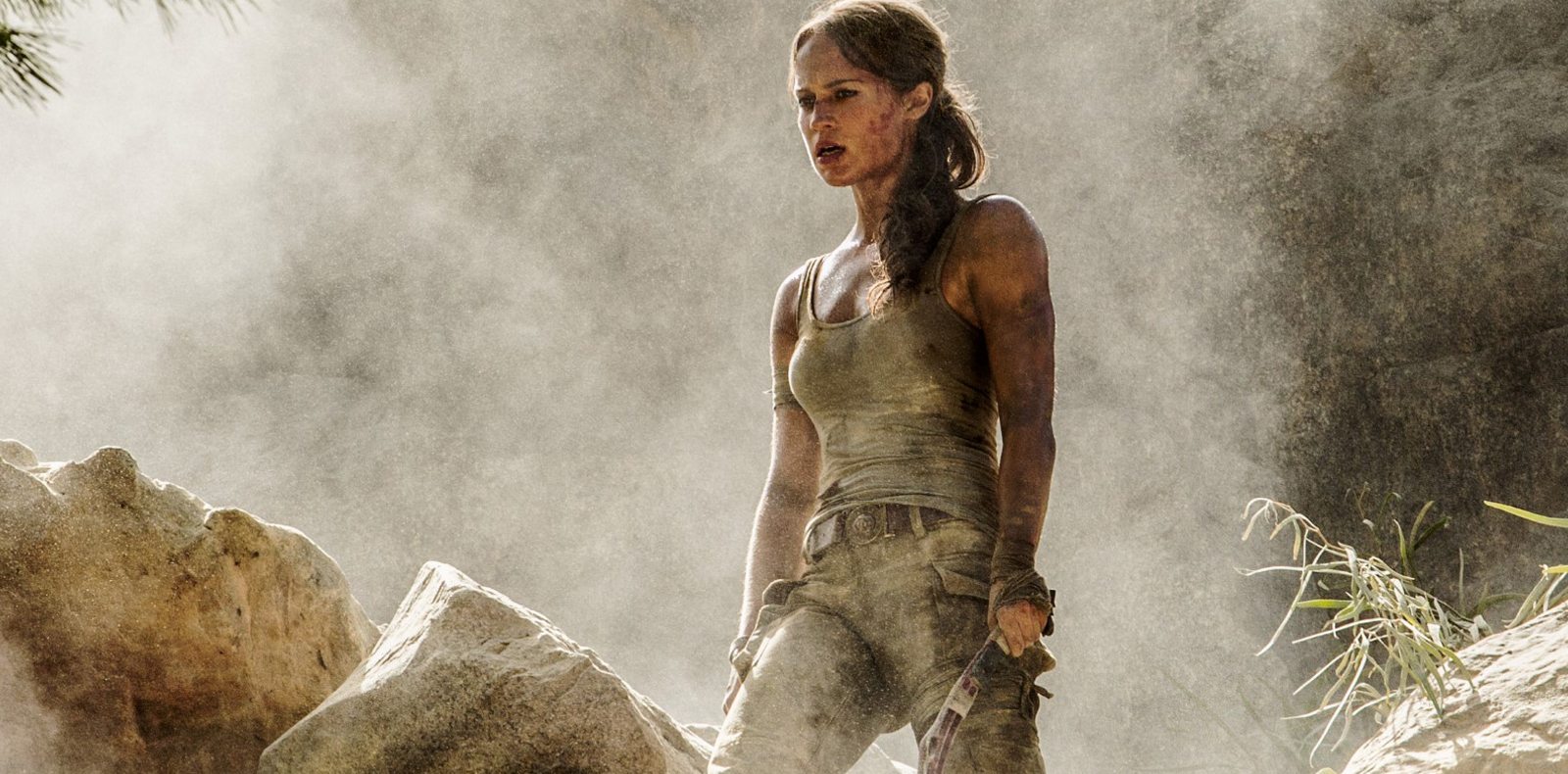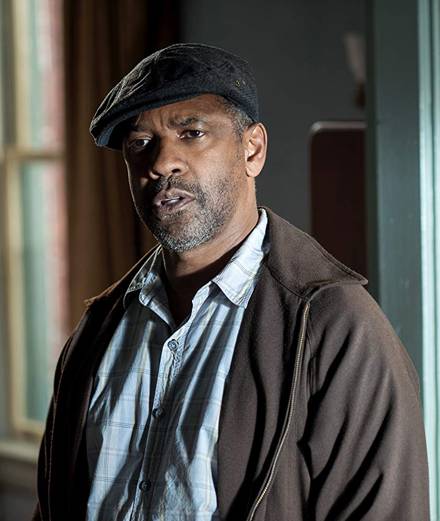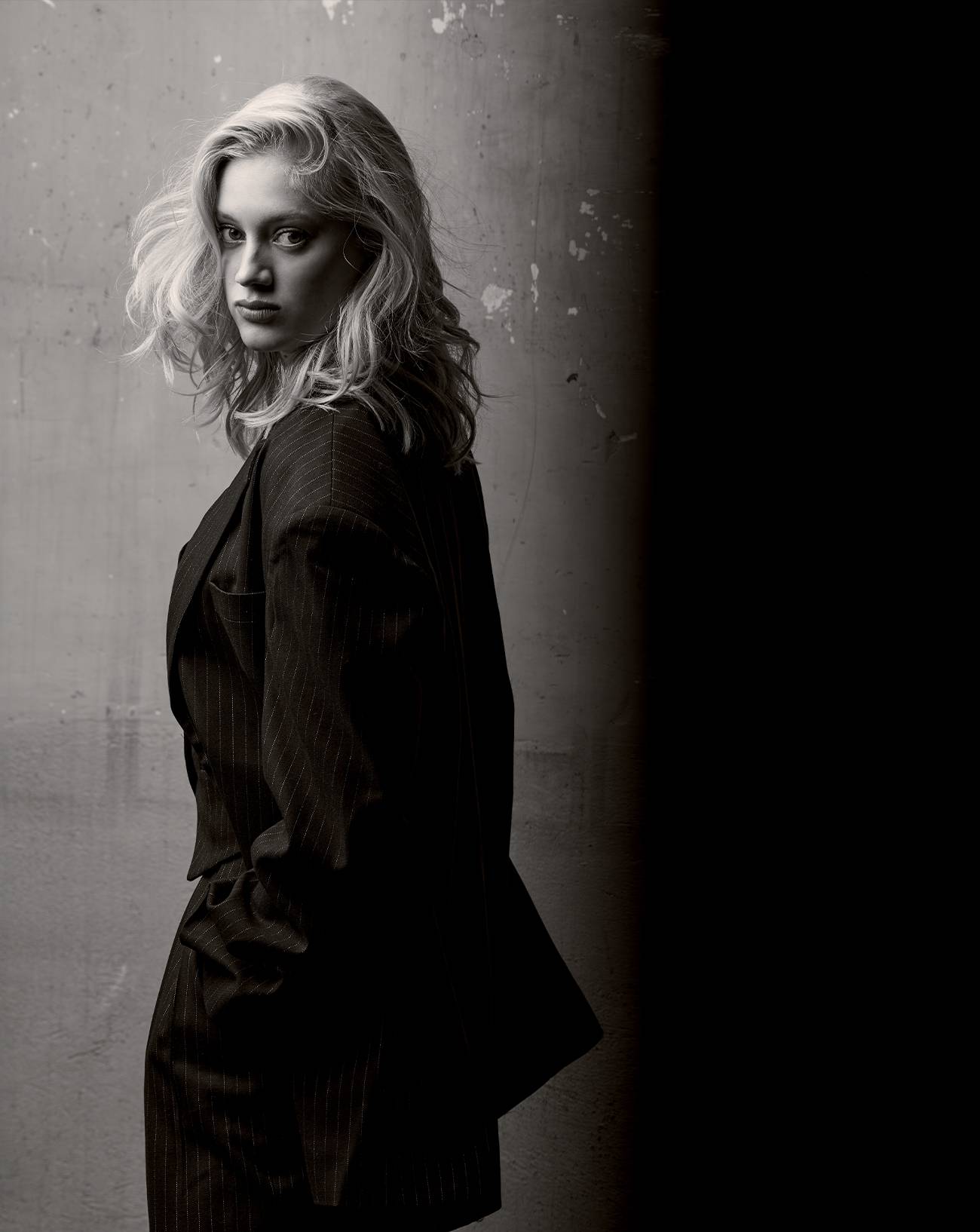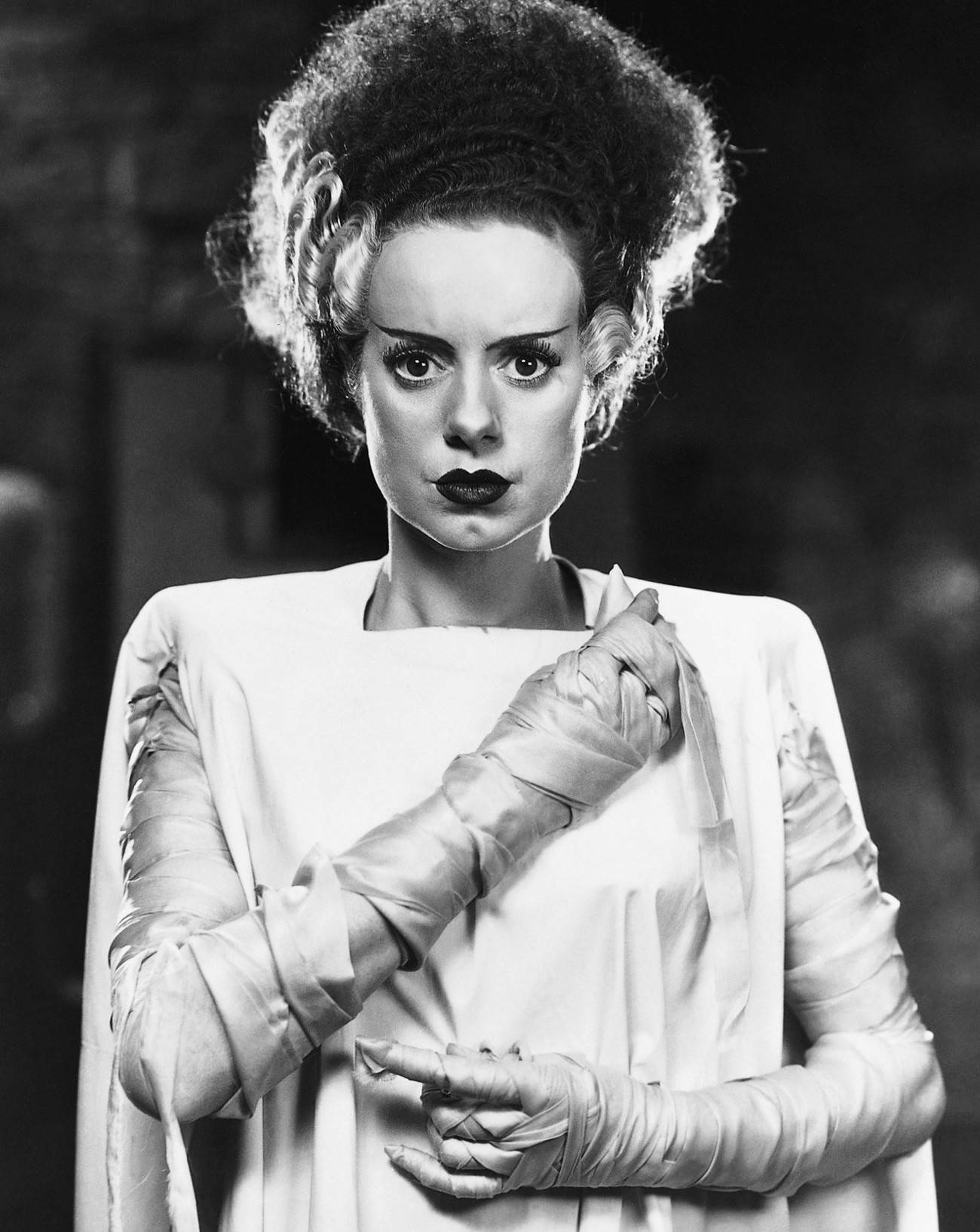In a documentary that came out in 2015, Alicia Vikander lent her voice to Ingrid Bergman, which was a way of owning her at least theoretical fil- iation with the most iconic Swedish actress in the history of Hollywood. Born in Göteborg, the current face of Louis Vuitton isn’t blonde like her predecessor, but is already demon- strating a similar talent. An accom- plished ballet dancer, who has been in the spotlight since her childhood, Vikander has accumulated a fine back catalogue of leading roles since taking the decision to work exclu- sively in cinema at the age of 20. With a filmography ranging from cos- tume dramas such as Royal Affair or Anna Karenina to heavyweight thrill- ers like Ex_Machina, this February she left Los Angeles’ Dolby Theater with the best-supporting-actress Oscar for her role in Tom Hooper’s The Danish Girl. It was a surprise win, and made her the most sought-after actress of her genera- tion. Ahead of her next three re- leases – Jason Bourne in August, The Light Between Oceans by indie director Derek Cianfrance this au- tumn, and Lara Croft due out next year – Vikander told Numéro about the craziest year in her career.
Numéro: This past year has been incredible for you.
Alicia Vikander: Yes, it’s been a very intense 12 months! A lot of my films came out almost at the same time, and I had to do a lot of interviews and faced media exposure like never be- fore. Which in the end was all just a coincidence! And this great big wave culminated with the Oscars. I still can’t get over it. What an incredible evening! I was with family and friends who’d all come over from Europe. It was especially extraordinary in that when I grew up English-language, and particularly American, movies seemd like a far-off fantasy world. When I was little, my mother used to set the alarm for 2.00 am to watch the Oscars. So finding myself on the red carpet with her... When we got there we said to each other, “It’s crazy being here together!” Then I danced all night long, and the next morning I went back to work.
Like an Oscar-winning Cinderella...
I haven’t stopped since – I haven’t even had time to go back home to Sweden. I left the statuette with a friend. I hope she’s taking good care of it! [Laughs.]
You were nominated alongside Jennifer Jason Leigh, Rooney Mara, Rachel McAdams and Kate Winslet. The movie business must see you very differently now.
To be honest, when I’m working a lot like I am at the moment, I turn into a bit of an ostrich. I throw myself into my work. And I like this total immer- sion. I’m living my passion. I’m fright- ened, I tremble, but for the right rea- sons. In the movies you can only be sure of one thing: with each film you do you launch yourself into some- thing completely new, as if you were throwing the dice all over again. Novelty is permanent and elusive. Of course I realize that, for someone fairly young like me, an Oscar is an extraordinary encouragement. It shows that I’m going in the right di- rection. And I need that, because I put pressure on myself to improve. I never stop putting myself under pressure. On the other hand, I’m very good at telling other people not to worry and that everything will turn out okay for them! [Laughs.]
During your childhood in Sweden, you began your performing career in a musical produced by two ex-members of Abba. How did you manage to find a balance in your life once you reached adulthood?
My mother was a stage actress, that was her job, but when I performed on the stage of the Göteborg Opera at the age of seven, I didn’t think I was working. And I had to convince my mother, who wanted to protect me. In fact I took the word “play” lit- erally. I had fun at a bigger scale than in real life, and that’s what I still do today. When I look at children, I see that their personalities are formed very early on. Some want to play more than others. With my girl- friends, at the age of six or seven, we had a lot of fun. My environment was healthy and reassuring. For a num- ber of years, the theatre was my sec- ond home.
You were a high-level professional ballet dancer before becoming a film actress.
I was a pupil in the Royal Swedish Ballet and then in New York – but I want to point out that I failed to get into drama school. [Laughs.] Ballet was a very important part of my life, a cornerstone. When I stopped dancing to become an actress, I kept the benefits of this apprenticeship. Later, when I was doing films like Ex_Machina [Alex Garland, 2015] or Anna Karenina [Joe Wright, 2012], I realized that acting and dancing are fairly close art forms that in many ways are complementary.
This summer you’re starring in a blockbuster, the new Jason Bourne, alongside Matt Damon. It’s your first real action movie I believe.
I greatly enjoyed watching the other films in the series, which I grew up with. They redefined the spy movie in a way that was intelligent and fun. The genre was badly in need of a new energy, and the Jason Bourne movies gave it just the kick it needed in the right direction. For a “popcorn franchise,” as they’re called, you find some very interesting social and po- litical aspects in the Jason Bournes. And for action films, they’re really ambitious productions. I didn’t really get to use my past life as a dancer in this particular role, because the woman I play isn’t strictly speaking part of the action – she gives orders to people who put themselves in danger all over the world!
You’ve just been shooting Wim Wenders’ next film, Submergence.
It’s a movie with two parallel stories and involves filming all over the world in different locations. I’ll soon be go- ing to the Faroe Islands, which I’m greatly looking forward to discover- ing. The shoot is almost done, and I have to say that my heart will be a little heavy when the whole thing is over. My mother showed me Wings of Desire and Paris, Texas when I was about 12. The first time I met Wim Wenders for a coffee, I didn’t have the impression I was being au- ditioned – I was just happy talking to him and hearing what he had to say. His films were my introduction to arthouse cinema, which is some- thing that means a lot in someone’s life. He’s a director who still has a very modern eye. On set with him I found myself doing shots that were totally different from anything I’d ever done before. In his way of creating a visual world and organizing takes, he really opened the door for me into a very particular universe. And not only did I learn a lot, it was also a huge amount of fun, because Wim really makes me laugh!
You seem to be doing film after film without stopping.
I don’t think in terms of a competi- tion, but it’s true that I’m very excited by the opportunities that are opening up for me. I’m never a victim of the situation – I move forward in a way that suits me. I founded my own company, Vikarious Productions, a year ago, and we’re about to start producing our first film, Euphoria, starring Eva Green. I know the direc- tor, Lisa Langseth, because she made Pure, the first feature film I did back in 2009. I’m completely fasci- nated by her way of working. And I knew from very early on that I would want to go over to the other side of the camera, because every aspect of the movie business interests me. Starting a career as a producer seemed totally natural, especially with a truly independent film.
Your first production is being directed by a woman – is that some- thing that’s important to you?
Recently I was interviewed by a mag- azine that wanted to meet the ac- tresses I’d performed with. And I re- alized that in eight films I hadn’t actually worked with that many ac- tresses. I found that a bit sad. Not to mention female directors... Over the past year or two, people have been talking a lot about the situation of women in film, which seems a good sign to me, perhaps the beginning of a change. Actresses are beginning to be asked to carry big Hollywood films on their shoulders. On my side, as a producer, hiring a woman was a desire, a choice. The whole thing began with a rather alcoholic lunch. I told Lisa Langseth how much I thought she was an incredible scriptwriter and director, then she sketched out an idea for a feature film that I immediately wanted to pro- duce. Her script involves two hero- ines, which is pretty rare, even in 2016... There are lots of girls working with me on this film. We have to make it easier for women to express themselves.
